Radio Caroline, Britain's pirate radio station broadcasting from sea, turns 60 years strong
As the old adage goes: “Always be yourself. Unless you can be a pirate. Then always be a pirate.”
That certainly applies to the small, but special circle of swashbuckling radio enthusiasts in the United Kingdom who have kept the rogue seaborne radio station, Radio Caroline, afloat now for the past 60 long years.
Over that time span, it’s been a fascinating tale of trials and tribulations just to keep the renegade broadcaster on the air and running for as long as it has.
The story begins in 1964, when a maverick Irish businessman by the name of Ronan O'Rahilly decided to break the BBC monopoly and set-up a station on a ship in international waters off the English coast.
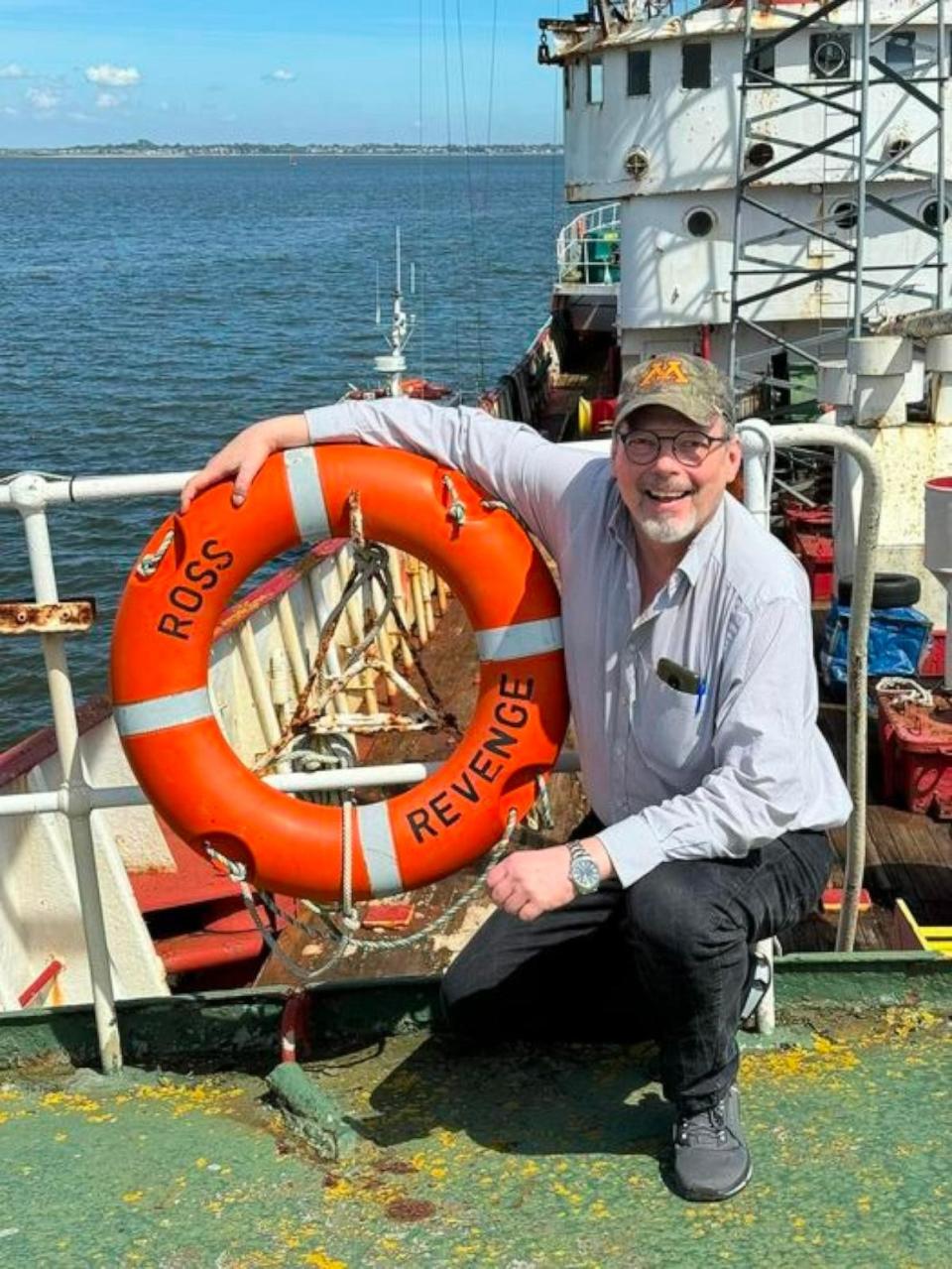
As broadcaster and author Ray Clark points out, the radio landscape was very, very different then.
“Back in the '60s, kids in America had a wealth of radio stations to listen to,” Clark told ABC News. “Here in the U.K., we had one, the BBC, and they hadn't discovered The Beatles. We needed Radio Caroline, from a ship three miles off the coast, to hear that pop music that we craved for.”
However, over the decades, there have been a host of changes and challenges to the renegade radio station.
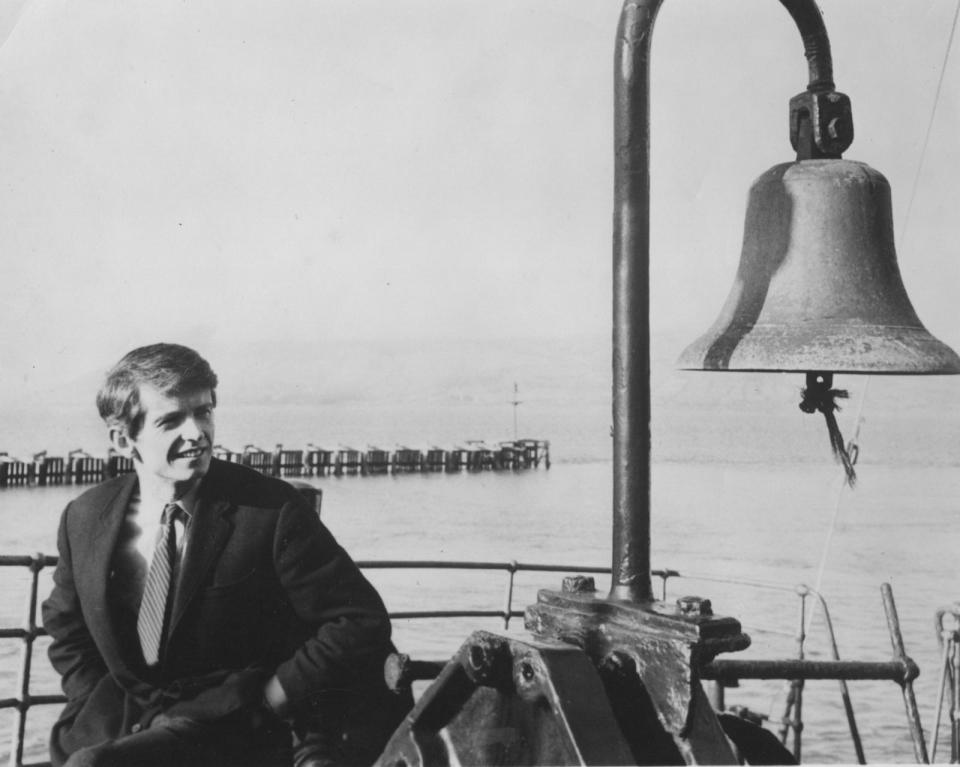
In 1967, the British government passed legislation -- the Marine Offences Act -- to stop ship-based pirates from broadcasting, with Radio Caroline being just one of a handful of stations broadcasting from sea.
Every single station complied by shutting down their operations. All except for Radio Caroline, which kept pumping out pop music to millions in the U.K. and on the European continent.
A year later, financial problems would hit, and Radio Caroline was raided and towed to The Netherlands by Dutch creditors where it was docked for the next four years.
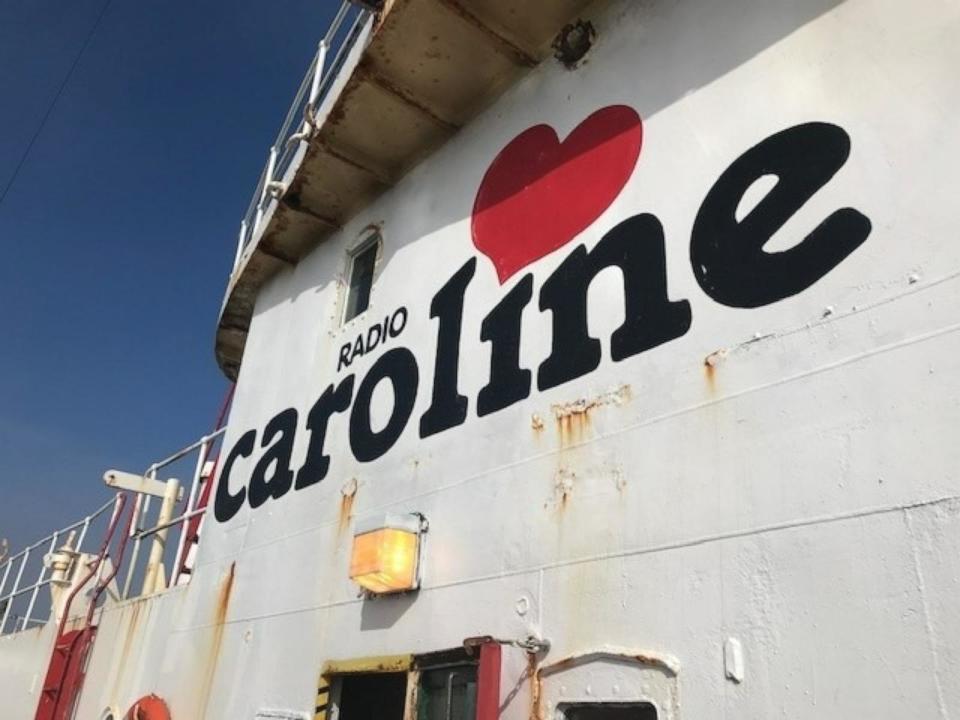
The Caroline vessel, the MV Mi Amigo, eventually returned to the airwaves until it sank in the North Sea in 1980 with all of the crew members safely rescued.
But after an absence of three year, undaunted, Radio Caroline returned once more on a new ship, the sturdy former super trawler, the MV Ross Revenge, a bigger and more modern ship for the station to operate on.
But in 1991, disaster struck again.
The MV Ross Revenge ended up losing its anchor chain and managed to drift onto the notorious Goodwin Sands in the English Channel where the crew was rescued but the ship was badly battered. It was subsequently towed back to the U.K., sadly limping into Dover harbor on England’s south coast.
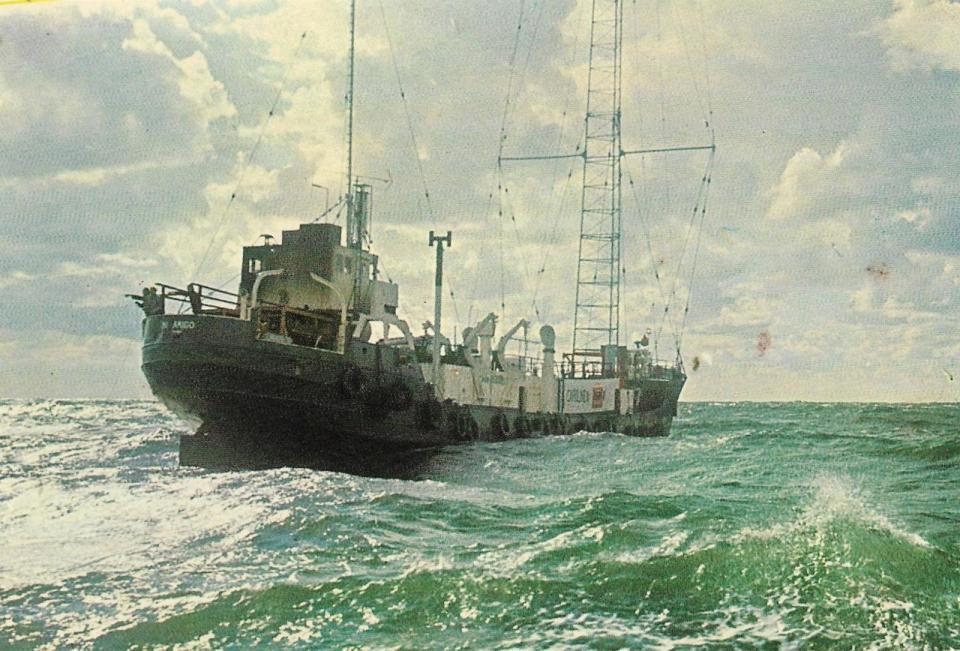
What followed was years of painstaking work by volunteers who helped patch the ship up and get it into proper working order again.
Now, after all the challenges the station has faced, Radio Caroline still exists 60 years on -- even if it operates slightly differently than it once did.
The station now broadcasts from a legal land-based studio but, for one weekend a month, crews go out to the vessel -- now anchored in the English territorial waters of the Blackwater Estuary off Essex -- and do their programs from there.
The station remains as popular as ever as it broadcasts pure nostalgic fun harkening back to the swinging '60s. Listeners love it not only in the U.K., but now people around the world can listen to it via internet streams.
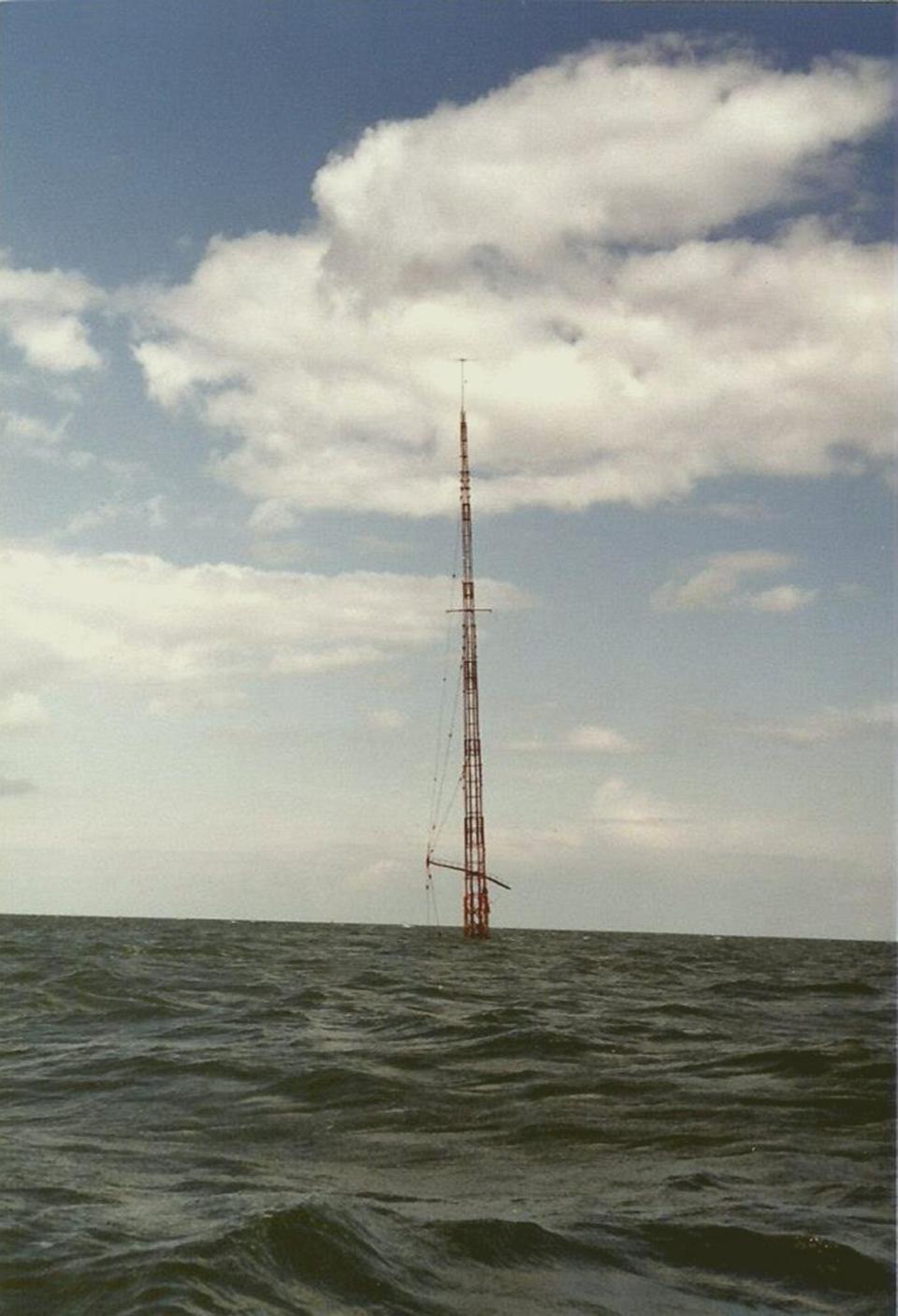
For DJs like Kevin Turner, who's back on the vessel after a five-year gap, it's a massive journey down memory lane.
“60 years is a good long innings, but it’s also an opportunity to remind people that that the station is still on the air, we're one of the few broadcasters still using AM and we've managed to broaden the appeal of the radio station quite a lot over the last few years,” Turner told ABC News.
Setting up each month's special broadcast from the ship is the job of Dave Foster.
“When you come out, there's always something that you need to give a technical tweak to make it all work properly because its left for a month or so and then you come back on and it's got a bit cold, a bit damp and there's always something that has to be fixed to make it work properly again,' said Turner.
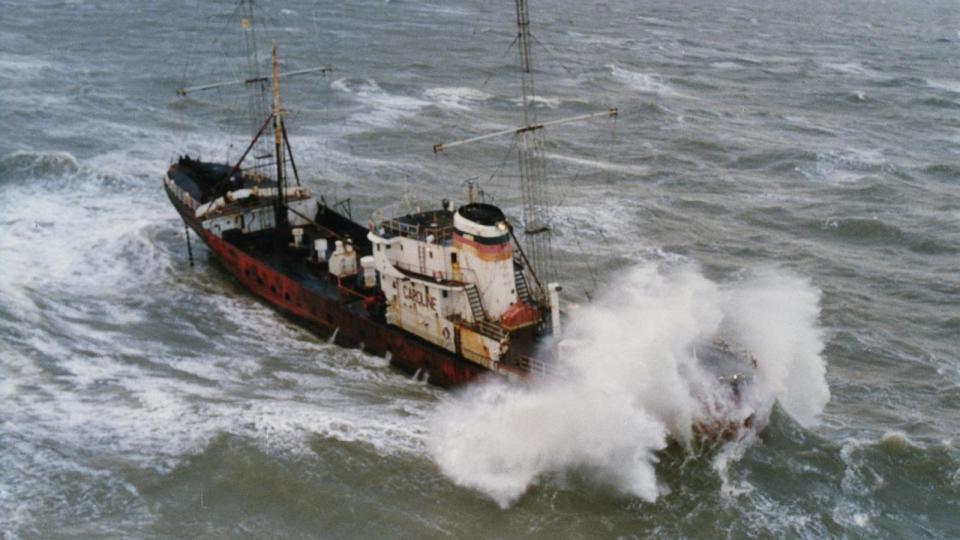
These days, the station is a registered charity and the latest project, according to DJ Andrew Austin, is to raise money to get it into Dry Dock for well needed maintenance work.
“We are really the caretakers of it for our part of time while we're all here, so it's so important that the ship gets sorted out in the months and years to come and remains visible,” Turner said.
For those temped for a dive deeper into the subject, Ray Clark has penned the definitive version of the history of the station called “The True Story of the Boat That Rocked.”
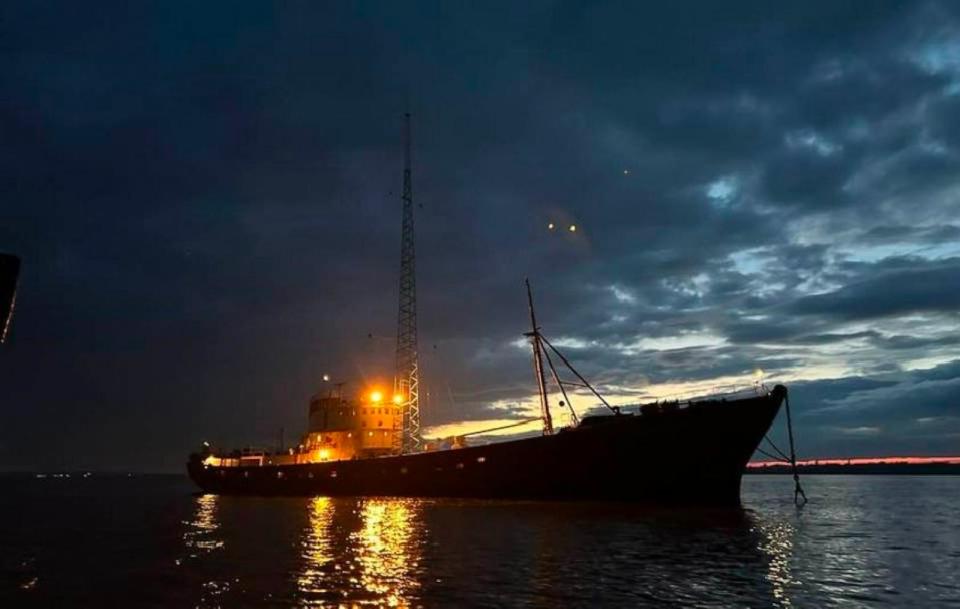
“You couldn't write a novel that would be like this. When you tell people that it is factual, you say, no, that surely didn't happen,” Clark said. “Battles with governments, battles with the weather, battles within the organization. The whole story is unbelievable and still, 60 years on, Caroline still exists. It defies all the odds. It should have been beaten a week after it started in 1964. Here we are in 2024, still going strong.”
For now though, once a month, which seems to come and go with a blink of an eye, the special weekend broadcasts speed by and soon it's time leave the sea spray behind and hop on a small fishing boat tender. But 30 minutes later, it is land ho once again, as the misty dream evaporates and is replaced by a jolting return to the real, humdrum world of 9 to 5.
For upcoming schedules and links, head to www.radiocaroline.co.uk
Radio Caroline, Britain's pirate radio station broadcasting from sea, turns 60 years strong originally appeared on abcnews.go.com

